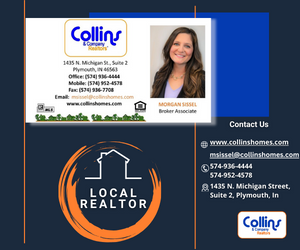 Area schools are using an assessment process called “SMART Strengths” to help students identify their strengths and the strengths of others.
Area schools are using an assessment process called “SMART Strengths” to help students identify their strengths and the strengths of others.
SMART Strengths is the definitive, research-supported guide to building character, resilience, and relationships in youth and their adult mentor.
Plymouth Schools Assistant Superintendent, Dan Funston, said he is working closely with Dr. John Yeager, one of the authors of the book, as the Plymouth Community School Corporation organizes the learning opportunities for teachers.
Dr. Yeager is the Director of the Center for Character Excellence at Culver Academies. Funston said, “The teachers who are in training spend one day with Dr. Yeagar. After this day, we spend the year working through the different chapters of the book.” According to Funston, there are many ideas for incorporating ideas into classrooms throughout the work.”
One of the strategies used in the classroom to help students help identify the strengths of each one in the classroom is the “Strengths 360 Walk”. In this exercise, each student has a poster and their peers write down the strengths that they see in that student. Funston said, “Once that is done, a comparison is done with the student’s identified strengths from the survey.”
During the November Plymouth School Board meeting, Menominee Elementary fourth graders presented a snapshot of what they had learned about themselves and their classmates. Menominee Principal, Steven Boyer, said, “This is the age when students are forming opinions of themselves. Having an open dialogue between the students and the teachers helps them foster their strengths.”
Funston said the approach can be used for all grades, but currently the survey tools for youth are recommended down to around grade 4. He said, “The authors of the book are currently working with some of our teachers to develop a survey tool for the primary grades that would be picture based.”
Carrie McGuire, principal of Webster Elementary, said they are not at the point where they are using the survey in the classroom, but are identifying the strengths of the staff. She said, “We are developing a creativity graph that we will post in the teacher’s break room showing the strengths of each of us.”
The Weidner School of Inquiry is using the assessment tool with the 50 students enrolled in leadership classes.
According to Funston, the authors of the book will be hosting a conference at PHS next summer. He said, “It is my hope that the ideas are widely used across the corporation.” “Kids come to us with a wide array of strengths. An appreciation for that allows us to incorporate student’s interests and strengths into their learning experiences.” Funston said.
Triton Elementary Principal, Jeremy Riffle, is a strong believer in the system.
Riffle said, “Strengths open your eyes to your positive strengths as well as others’ strengths.” The first two letters of the acronym “SMART” stand for spotting and managing. Riffle added, “Strengths spotting allows you to know your own strengths and also spot them in others. This self awareness and an awareness of others is unlike most thought processes.”
Riffle said he and the Triton Elementary Assistant Principal, Josh Van Houten, model the process that can contribute to their relationships with friends, classroom, teams, families, etc. with the school’s fifth and sixth grades classes. They offer the free survey (VIA -Values In Action-strengths) to parents as well. Riffle said, “It creates a discussion and awareness at home with their kids. It also helps them understand where they and their child share strengths or where they may clash”
Riffle said they also discuss “Shadow Strengths“, or the dark side of their strengths. This is when we take our strength so far that it becomes a hindrance to the team.“ He shared the example of a “funny guy” or “class clown” who can take their strength of humor and playfulness too far and it becomes a problem. Riffle said, “We use it in discipline. We can simply tell a student they are showing their “shadow” to help them rein in their behavior.”
The Triton Elementary link to the survey says, “It is easy to focus on what is wrong, but using strengths can help you take a step back from a conflict situation and get a new view.”
Carol Anders Correspondent














